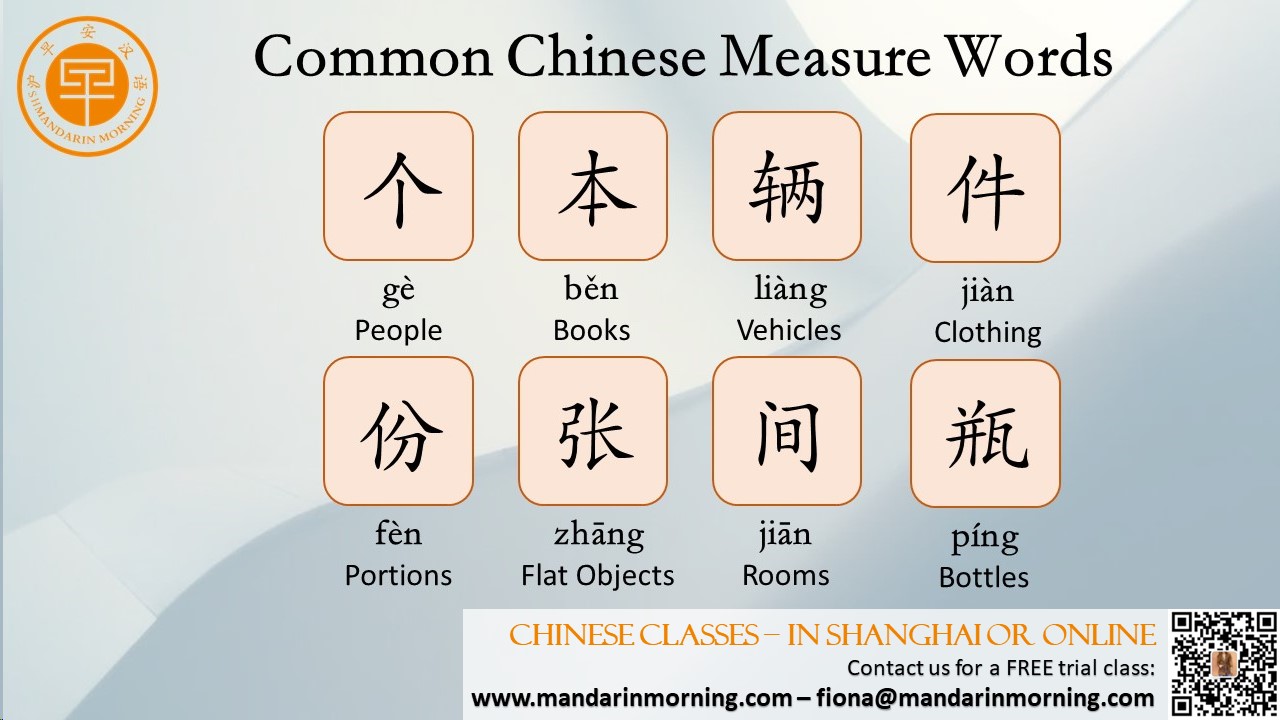| Did you know that for certain nouns, you can omit the measure word while still sounding like a native speaker. So, how can you get this right? Let’s jump into five simple rules that will help you better understand this part of the Chinese language. This is part two of our article.  Rule 3: Day and year are classifying measure words In Chinese grammar, units of time such as 天 (tiān; day) and 年 (nián; year) function as classifying measure words, not as nouns like they often do in other languages. So, when these words are quantified, a noun isn’t required! For instance, “three days” in Chinese is simply 三天 (tiān) and “five years” is 五年 (wǔ nián). Notice that the classic pattern “numeral + measure word (MW) + noun” doesn’t apply here. It would actually be grammatically incorrect to say 三个天 or 五个年 using 个 (ge), the general measure word. Other time-related words that share this feature are 分钟 (fēn zhōng; minute), 秒 (miǎo; second), and 晚 (wǎn; night). Rule 4: Monetary units function as classifiers Just like the units of time in Rule 3, units of money such as dollar, cent, and pence also function as classifying measure words in Chinese. Examples include 块 (kuài) for “dollar” and 分 (fēn) for “cent.” They act as classifiers for money and do not require a noun to accompany them. For instance, “three dollars” translates to 三块 (sān kuài) and “eight cents” to 八分 (bā fēn). However, if you want to clarify that you’re referring to money and not something else, you can add 钱 (qián; the noun for money) at the end. For example, 三块钱 (sān kuài qián) unambiguously translates to “three dollars.” So, according to Rules 3 and 4, when dealing with these specific classifiers, it’s important to note that what’s being omitted is the noun, not the measure word itself! Rule 5: Navigating the tricky word 月 月 (yuè), the Chinese word for “month,” can be a bit of a language minefield! It can act as both a classifying measure word and a noun! For instance, 八月 (bā yuè; eight + month) doesn’t translate to “eight months” but to the month “August.” To express “eight months,” you would use the classic pattern “numeral + measure word (MW) + noun”: 八个月 (bā ge yuè; eight + the general measure word 個/个 + month). Keep in mind 八月 and 八个月 carry different meanings because 月 has dual grammatical functions in Chinese. Now you may ask, are there Chinese words that offer flexibility – that you can use with or without measure words without changing the meaning? Indeed, there are! For instance: 人 (rén; person): Both 一人 (yī rén) and 一个人 (yī ge rén) mean “one person.” 星期 (xīng qí; week): 三星期 (sān xīng qí) and 三个星期 (sān ge xīng qí) both translate to “three weeks.” 小时 (xiǎo shí; hour): 五小时 (wǔ xiǎo shí) and 五个小时 (wǔ ge xiǎo shí) both denote “five hours.” Now, you have the five essential rules for understanding when to omit nouns in Chinese! It’s crucial to remember that it’s not the measure word being skipped but the noun itself. This is because some Chinese words can act both as classifiers and nouns. Once you get your head around this idea, you’re well on your way to mastering the use of Chinese measure words! |